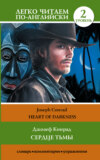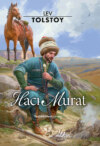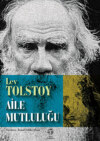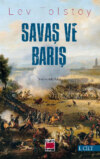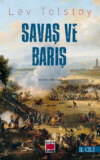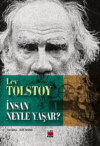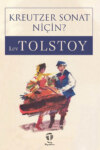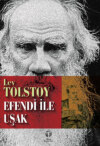Kitabı oku: «War and Peace», sayfa 12
Chapter XXVIII
Prince Andrew was to leave next evening. The old prince, not altering his routine, retired as usual after dinner. The little princess was in her sister-in-law’s room. Prince Andrew in a traveling coat without epaulettes had been packing with his valet in the rooms assigned to him. After inspecting the carriage himself and seeing the trunks put in, he ordered the horses to be harnessed. Only those things he always kept with him remained in his room; a small box, a large canteen fitted with silver plate, two Turkish pistols and a saber—a present from his father who had brought it from the siege of Ochákov. All these traveling effects of Prince Andrew’s were in very good order: new, clean, and in cloth covers carefully tied with tapes.
When starting on a journey or changing their mode of life, men capable of reflection are generally in a serious frame of mind. At such moments one reviews the past and plans for the future. Prince Andrew’s face looked very thoughtful and tender. With his hands behind him he paced briskly from corner to corner of the room, looking straight before him and thoughtfully shaking his head. Did he fear going to the war, or was he sad at leaving his wife?—perhaps both, but evidently he did not wish to be seen in that mood, for hearing footsteps in the passage he hurriedly unclasped his hands, stopped at a table as if tying the cover of the small box, and assumed his usual tranquil and impenetrable expression. It was the heavy tread of Princess Mary that he heard.
“I hear you have given orders to harness,” she cried, panting (she had apparently been running), “and I did so wish to have another talk with you alone! God knows how long we may again be parted. You are not angry with me for coming? You have changed so, Andrúsha,” she added, as if to explain such a question.
She smiled as she uttered his pet name, “Andrúsha.” It was obviously strange to her to think that this stern handsome man should be Andrúsha—the slender mischievous boy who had been her playfellow in childhood.
“And where is Lise?” he asked, answering her question only by a smile.
“She was so tired that she has fallen asleep on the sofa in my room. Oh, Andrew! What a treasure of a wife you have,” said she, sitting down on the sofa, facing her brother. “She is quite a child: such a dear, merry child. I have grown so fond of her.”
Prince Andrew was silent, but the princess noticed the ironical and contemptuous look that showed itself on his face.
“One must be indulgent to little weaknesses; who is free from them, Andrew? Don’t forget that she has grown up and been educated in society, and so her position now is not a rosy one. We should enter into everyone’s situation. Tout comprendre, c’est tout pardonner. [16] Think what it must be for her, poor thing, after what she has been used to, to be parted from her husband and be left alone in the country, in her condition! It’s very hard.”
Prince Andrew smiled as he looked at his sister, as we smile at those we think we thoroughly understand.
“You live in the country and don’t think the life terrible,” he replied.
“I … that’s different. Why speak of me? I don’t want any other life, and can’t, for I know no other. But think, Andrew: for a young society woman to be buried in the country during the best years of her life, all alone—for Papa is always busy, and I … well, you know what poor resources I have for entertaining a woman used to the best society. There is only Mademoiselle Bourienne… .”
“I don’t like your Mademoiselle Bourienne at all,” said Prince Andrew.
“No? She is very nice and kind and, above all, she’s much to be pitied. She has no one, no one. To tell the truth, I don’t need her, and she’s even in my way. You know I always was a savage, and now am even more so. I like being alone… . Father likes her very much. She and Michael Ivánovich are the two people to whom he is always gentle and kind, because he has been a benefactor to them both. As Sterne says: ‘We don’t love people so much for the good they have done us, as for the good we have done them.’ Father took her when she was homeless after losing her own father. She is very good-natured, and my father likes her way of reading. She reads to him in the evenings and reads splendidly.”
“To be quite frank, Mary, I expect Father’s character sometimes makes things trying for you, doesn’t it?” Prince Andrew asked suddenly.
Princess Mary was first surprised and then aghast at this question.
“For me? For me? … Trying for me! …” said she.
“He always was rather harsh; and now I should think he’s getting very trying,” said Prince Andrew, apparently speaking lightly of their father in order to puzzle or test his sister.
“You are good in every way, Andrew, but you have a kind of intellectual pride,” said the princess, following the train of her own thoughts rather than the trend of the conversation—“and that’s a great sin. How can one judge Father? But even if one might, what feeling except veneration could such a man as my father evoke? And I am so contented and happy with him. I only wish you were all as happy as I am.”
Her brother shook his head incredulously.
“The only thing that is hard for me … I will tell you the truth, Andrew … is Father’s way of treating religious subjects. I don’t understand how a man of his immense intellect can fail to see what is as clear as day, and can go so far astray. That is the only thing that makes me unhappy. But even in this I can see lately a shade of improvement. His satire has been less bitter of late, and there was a monk he received and had a long talk with.”
“Ah! my dear, I am afraid you and your monk are wasting your powder,” said Prince Andrew banteringly yet tenderly.
“Ah! mon ami, I only pray, and hope that God will hear me. Andrew …” she said timidly after a moment’s silence, “I have a great favor to ask of you.”
“What is it, dear?”
“No—promise that you will not refuse! It will give you no trouble and is nothing unworthy of you, but it will comfort me. Promise, Andrúsha! …” said she, putting her hand in her reticule but not yet taking out what she was holding inside it, as if what she held were the subject of her request and must not be shown before the request was granted.
She looked timidly at her brother.
“Even if it were a great deal of trouble …” answered Prince Andrew, as if guessing what it was about.
“Think what you please! I know you are just like Father. Think as you please, but do this for my sake! Please do! Father’s father, our grandfather, wore it in all his wars.” (She still did not take out what she was holding in her reticule.) “So you promise?”
“Of course. What is it?”
“Andrew, I bless you with this icon and you must promise me you will never take it off. Do you promise?”
“If it does not weigh a hundredweight and won’t break my neck … To please you …” said Prince Andrew. But immediately, noticing the pained expression his joke had brought to his sister’s face, he repented and added: “I am glad; really, dear, I am very glad.”
“Against your will He will save and have mercy on you and bring you to Himself, for in Him alone is truth and peace,” said she in a voice trembling with emotion, solemnly holding up in both hands before her brother a small, oval, antique, dark-faced icon of the Saviour in a gold setting, on a finely wrought silver chain.
She crossed herself, kissed the icon, and handed it to Andrew.
“Please, Andrew, for my sake! …”
Rays of gentle light shone from her large, timid eyes. Those eyes lit up the whole of her thin, sickly face and made it beautiful. Her brother would have taken the icon, but she stopped him. Andrew understood, crossed himself and kissed the icon. There was a look of tenderness, for he was touched, but also a gleam of irony on his face.
“Thank you, my dear.” She kissed him on the forehead and sat down again on the sofa. They were silent for a while.
“As I was saying to you, Andrew, be kind and generous as you always used to be. Don’t judge Lise harshly,” she began. “She is so sweet, so good-natured, and her position now is a very hard one.”
“I do not think I have complained of my wife to you, Másha, or blamed her. Why do you say all this to me?”
Red patches appeared on Princess Mary’s face and she was silent as if she felt guilty.
“I have said nothing to you, but you have already been talked to. And I am sorry for that,” he went on.
The patches grew deeper on her forehead, neck, and cheeks. She tried to say something but could not. Her brother had guessed right: the little princess had been crying after dinner and had spoken of her forebodings about her confinement, and how she dreaded it, and had complained of her fate, her father-in-law, and her husband. After crying she had fallen asleep. Prince Andrew felt sorry for his sister.
“Know this, Másha: I can’t reproach, have not reproached, and never shall reproach my wife with anything, and I cannot reproach myself with anything in regard to her; and that always will be so in whatever circumstances I may be placed. But if you want to know the truth … if you want to know whether I am happy? No! Is she happy? No! But why this is so I don’t know …”
As he said this he rose, went to his sister, and, stooping, kissed her forehead. His fine eyes lit up with a thoughtful, kindly, and unaccustomed brightness, but he was looking not at his sister but over her head toward the darkness of the open doorway.
“Let us go to her, I must say goodbye. Or—go and wake and I’ll come in a moment. Petrúshka!” he called to his valet: “Come here, take these away. Put this on the seat and this to the right.”
Princess Mary rose and moved to the door, then stopped and said:
“Andrew, if you had faith you would have turned to God and asked Him to give you the love you do not feel, and your prayer would have been answered.”
“Well, may be!” said Prince Andrew. “Go, Másha; I’ll come immediately.”
On the way to his sister’s room, in the passage which connected one wing with the other, Prince Andrew met Mademoiselle Bourienne smiling sweetly. It was the third time that day that, with an ecstatic and artless smile, she had met him in secluded passages.
“Oh! I thought you were in your room,” she said, for some reason blushing and dropping her eyes.
Prince Andrew looked sternly at her and an expression of anger suddenly came over his face. He said nothing to her but looked at her forehead and hair, without looking at her eyes, with such contempt that the Frenchwoman blushed and went away without a word. When he reached his sister’s room his wife was already awake and her merry voice, hurrying one word after another, came through the open door. She was speaking as usual in French, and as if after long self-restraint she wished to make up for lost time.
“No, but imagine the old Countess Zúbova, with false curls and her mouth full of false teeth, as if she were trying to cheat old age… . Ha, ha, ha! Mary!”
This very sentence about Countess Zúbova and this same laugh Prince Andrew had already heard from his wife in the presence of others some five times. He entered the room softly. The little princess, plump and rosy, was sitting in an easy chair with her work in her hands, talking incessantly, repeating Petersburg reminiscences and even phrases. Prince Andrew came up, stroked her hair, and asked if she felt rested after their journey. She answered him and continued her chatter.
The coach with six horses was waiting at the porch. It was an autumn night, so dark that the coachman could not see the carriage pole. Servants with lanterns were bustling about in the porch. The immense house was brilliant with lights shining through its lofty windows. The domestic serfs were crowding in the hall, waiting to bid goodbye to the young prince. The members of the household were all gathered in the reception hall: Michael Ivánovich, Mademoiselle Bourienne, Princess Mary, and the little princess. Prince Andrew had been called to his father’s study as the latter wished to say goodbye to him alone. All were waiting for them to come out.
When Prince Andrew entered the study the old man in his old-age spectacles and white dressing gown, in which he received no one but his son, sat at the table writing. He glanced round.
“Going?” And he went on writing.
“I’ve come to say goodbye.”
“Kiss me here,” and he touched his cheek: “Thanks, thanks!”
“What do you thank me for?”
“For not dilly-dallying and not hanging to a woman’s apron strings. The Service before everything. Thanks, thanks!” And he went on writing, so that his quill spluttered and squeaked. “If you have anything to say, say it. These two things can be done together,” he added.
“About my wife … I am ashamed as it is to leave her on your hands …”
“Why talk nonsense? Say what you want.”
“When her confinement is due, send to Moscow for an accoucheur… . Let him be here… .”
The old prince stopped writing and, as if not understanding, fixed his stern eyes on his son.
“I know that no one can help if nature does not do her work,” said Prince Andrew, evidently confused. “I know that out of a million cases only one goes wrong, but it is her fancy and mine. They have been telling her things. She has had a dream and is frightened.”
“Hm … Hm …” muttered the old prince to himself, finishing what he was writing. “I’ll do it.”
He signed with a flourish and suddenly turning to his son began to laugh.
“It’s a bad business, eh?”
“What is bad, Father?”
“The wife!” said the old prince, briefly and significantly.
“I don’t understand!” said Prince Andrew.
“No, it can’t be helped, lad,” said the prince. “They’re all like that; one can’t unmarry. Don’t be afraid; I won’t tell anyone, but you know it yourself.”
He seized his son by the hand with small bony fingers, shook it, looked straight into his son’s face with keen eyes which seemed to see through him, and again laughed his frigid laugh.
The son sighed, thus admitting that his father had understood him. The old man continued to fold and seal his letter, snatching up and throwing down the wax, the seal, and the paper, with his accustomed rapidity.
“What’s to be done? She’s pretty! I will do everything. Make your mind easy,” said he in abrupt sentences while sealing his letter.
Andrew did not speak; he was both pleased and displeased that his father understood him. The old man got up and gave the letter to his son.
“Listen!” said he; “don’t worry about your wife: what can be done shall be. Now listen! Give this letter to Michael Ilariónovich. [17] I have written that he should make use of you in proper places and not keep you long as an adjutant: a bad position! Tell him I remember and like him. Write and tell me how he receives you. If he is all right—serve him. Nicholas Bolkónski’s son need not serve under anyone if he is in disfavor. Now come here.”
He spoke so rapidly that he did not finish half his words, but his son was accustomed to understand him. He led him to the desk, raised the lid, drew out a drawer, and took out an exercise book filled with his bold, tall, close handwriting.
“I shall probably die before you. So remember, these are my memoirs; hand them to the emperor after my death. Now here is a Lombard bond and a letter; it is a premium for the man who writes a history of Suvórov’s wars. Send it to the Academy. Here are some jottings for you to read when I am gone. You will find them useful.”
Andrew did not tell his father that he would no doubt live a long time yet. He felt that he must not say it.
“I will do it all, Father,” he said.
“Well, now, goodbye!” He gave his son his hand to kiss, and embraced him. “Remember this, Prince Andrew, if they kill you it will hurt me, your old father …” he paused unexpectedly, and then in a querulous voice suddenly shrieked: “but if I hear that you have not behaved like a son of Nicholas Bolkónski, I shall be ashamed!”
“You need not have said that to me, Father,” said the son with a smile.
The old man was silent.
“I also wanted to ask you,” continued Prince Andrew, “if I’m killed and if I have a son, do not let him be taken away from you—as I said yesterday … let him grow up with you… . Please.”
“Not let the wife have him?” said the old man, and laughed.
They stood silent, facing one another. The old man’s sharp eyes were fixed straight on his son’s. Something twitched in the lower part of the old prince’s face.
“We’ve said goodbey. Go!” he suddenly shouted in a loud, angry voice, opening his door.
“What is it? What?” asked both princesses when they saw for a moment at the door Prince Andrew and the figure of the old man in a white dressing gown, spectacled and wigless, shouting in an angry voice.
Prince Andrew sighed and made no reply.
“Well!” he said, turning to his wife.
And this “Well!” sounded coldly ironic, as if he were saying,: “Now go through your performance.”
“Andrew, already!” said the little princess, turning pale and looking with dismay at her husband.
He embraced her. She screamed and fell unconscious on his shoulder.
He cautiously released the shoulder she leaned on, looked into her face, and carefully placed her in an easy chair.
“Adieu, Mary,” said he gently to his sister, taking her by the hand and kissing her, and then he left the room with rapid steps.
The little princess lay in the armchair, Mademoiselle Bourienne chafing her temples. Princess Mary, supporting her sister-in-law, still looked with her beautiful eyes full of tears at the door through which Prince Andrew had gone and made the sign of the cross in his direction. From the study, like pistol shots, came the frequent sound of the old man angrily blowing his nose. Hardly had Prince Andrew gone when the study door opened quickly and the stern figure of the old man in the white dressing gown looked out.
“Gone? That’s all right!” said he; and looking angrily at the unconscious little princess, he shook his head reprovingly and slammed the door.
16 To understand all is to forgive all.
17 Kutúzov
Book Two
Chapter I
In October 1805, a Russian army was occupying the villages and towns of the Archduchy of Austria, and yet other regiments freshly arriving from Russia were settling near the fortress of Braunau and burdening the inhabitants on whom they were quartered. Braunau was the headquarters of the commander-in-chief, Kutúzov.
On October 11, 1805, one of the infantry regiments that had just reached Braunau had halted half a mile from the town, waiting to be inspected by the commander-in-chief. Despite the un-Russian appearance of the locality and surroundings—fruit gardens, stone fences, tiled roofs, and hills in the distance—and despite the fact that the inhabitants (who gazed with curiosity at the soldiers) were not Russians, the regiment had just the appearance of any Russian regiment preparing for an inspection anywhere in the heart of Russia.
On the evening of the last day’s march an order had been received that the commander-in-chief would inspect the regiment on the march. Though the words of the order were not clear to the regimental commander, and the question arose whether the troops were to be in marching order or not, it was decided at a consultation between the battalion commanders to present the regiment in parade order, on the principle that it is always better to “bow too low than not bow low enough.” So the soldiers, after a twenty-mile march, were kept mending and cleaning all night long without closing their eyes, while the adjutants and company commanders calculated and reckoned, and by morning the regiment—instead of the straggling, disorderly crowd it had been on its last march the day before—presented a well-ordered array of two thousand men each of whom knew his place and his duty, had every button and every strap in place, and shone with cleanliness. And not only externally was all in order, but had it pleased the commander-in-chief to look under the uniforms he would have found on every man a clean shirt, and in every knapsack the appointed number of articles, “awl, soap, and all,” as the soldiers say. There was only one circumstance concerning which no one could be at ease. It was the state of the soldiers’ boots. More than half the men’s boots were in holes. But this defect was not due to any fault of the regimental commander, for in spite of repeated demands boots had not been issued by the Austrian commissariat, and the regiment had marched some seven hundred miles.
The commander of the regiment was an elderly, choleric, stout, and thick-set general with grizzled eyebrows and whiskers, and wider from chest to back than across the shoulders. He had on a brand-new uniform showing the creases where it had been folded and thick gold epaulettes which seemed to stand rather than lie down on his massive shoulders. He had the air of a man happily performing one of the most solemn duties of his life. He walked about in front of the line and at every step pulled himself up, slightly arching his back. It was plain that the commander admired his regiment, rejoiced in it, and that his whole mind was engrossed by it, yet his strut seemed to indicate that, besides military matters, social interests and the fair sex occupied no small part of his thoughts.
“Well, Michael Mítrich, sir?” he said, addressing one of the battalion commanders who smilingly pressed forward (it was plain that they both felt happy). “We had our hands full last night. However, I think the regiment is not a bad one, eh?”
The battalion commander perceived the jovial irony and laughed.
“It would not be turned off the field even on the Tsarítsin Meadow.”
“What?” asked the commander.
At that moment, on the road from the town on which signalers had been posted, two men appeared on horseback. They were an aide-de-camp followed by a Cossack.
The aide-de-camp was sent to confirm the order which had not been clearly worded the day before, namely, that the commander-in-chief wished to see the regiment just in the state in which it had been on the march: in their greatcoats, and packs, and without any preparation whatever.
A member of the Hofkriegsrath from Vienna had come to Kutúzov the day before with proposals and demands for him to join up with the army of the Archduke Ferdinand and Mack, and Kutúzov, not considering this junction advisable, meant, among other arguments in support of his view, to show the Austrian general the wretched state in which the troops arrived from Russia. With this object he intended to meet the regiment; so the worse the condition it was in, the better pleased the commander-in-chief would be. Though the aide-de-camp did not know these circumstances, he nevertheless delivered the definite order that the men should be in their greatcoats and in marching order, and that the commander-in-chief would otherwise be dissatisfied. On hearing this the regimental commander hung his head, silently shrugged his shoulders, and spread out his arms with a choleric gesture.
“A fine mess we’ve made of it!” he remarked.
“There now! Didn’t I tell you, Michael Mitrich, that if it was said ‘on the march’ it meant in greatcoats?” said he reproachfully to the battalion commander. “Oh, my God!” he added, stepping resolutely forward. “Company commanders!” he shouted in a voice accustomed to command. “Sergeants major! … How soon will he be here?” he asked the aide-de-camp with a respectful politeness evidently relating to the personage he was referring to.
“In an hour’s time, I should say.”
“Shall we have time to change clothes?”
“I don’t know, General… .”
The regimental commander, going up to the line himself, ordered the soldiers to change into their greatcoats. The company commanders ran off to their companies, the sergeants major began bustling (the greatcoats were not in very good condition), and instantly the squares that had up to then been in regular order and silent began to sway and stretch and hum with voices. On all sides soldiers were running to and fro, throwing up their knapsacks with a jerk of their shoulders and pulling the straps over their heads, unstrapping their overcoats and drawing the sleeves on with upraised arms.
In half an hour all was again in order, only the squares had become gray instead of black. The regimental commander walked with his jerky steps to the front of the regiment and examined it from a distance.
“Whatever is this? This!” he shouted and stood still. “Commander of the third company!”
“Commander of the third company wanted by the general! … commander to the general … third company to the commander.” The words passed along the lines and an adjutant ran to look for the missing officer.
When the eager but misrepeated words had reached their destination in a cry of: “The general to the third company,” the missing officer appeared from behind his company and, though he was a middle-aged man and not in the habit of running, trotted awkwardly stumbling on his toes toward the general. The captain’s face showed the uneasiness of a schoolboy who is told to repeat a lesson he has not learned. Spots appeared on his nose, the redness of which was evidently due to intemperance, and his mouth twitched nervously. The general looked the captain up and down as he came up panting, slackening his pace as he approached.
“You will soon be dressing your men in petticoats! What is this?” shouted the regimental commander, thrusting forward his jaw and pointing at a soldier in the ranks of the third company in a greatcoat of bluish cloth, which contrasted with the others. “What have you been after? The commander in chief is expected and you leave your place? Eh? I’ll teach you to dress the men in fancy coats for a parade… . Eh …?”
The commander of the company, with his eyes fixed on his superior, pressed two fingers more and more rigidly to his cap, as if in this pressure lay his only hope of salvation.
“Well, why don’t you speak? Whom have you got there dressed up as a Hungarian?” said the commander with an austere gibe.
“Your Excellency …”
“Well, Your Excellency, what? Your Excellency! But what about Your Excellency? … nobody knows.”
“Your Excellency, it’s the officer Dólokhov, who has been reduced to the ranks,” said the captain softly.
“Well? Has he been degraded into a field marshal, or into a soldier? If a soldier, he should be dressed in regulation uniform like the others.”
“Your Excellency, you gave him leave yourself, on the march.”
“Gave him leave? Leave? That’s just like you young men,” said the regimental commander cooling down a little. “Leave indeed… . One says a word to you and you … What?” he added with renewed irritation, “I beg you to dress your men decently.”
And the commander, turning to look at the adjutant, directed his jerky steps down the line. He was evidently pleased at his own display of anger and walking up to the regiment wished to find a further excuse for wrath. Having snapped at an officer for an unpolished badge, at another because his line was not straight, he reached the third company.
“H-o-o-w are you standing? Where’s your leg? Your leg?” shouted the commander with a tone of suffering in his voice, while there were still five men between him and Dólokhov with his bluish-gray uniform.
Dólokhov slowly straightened his bent knee, looking straight with his clear, insolent eyes in the general’s face.
“Why a blue coat? Off with it … Sergeant Major! Change his coat … the ras …” he did not finish.
“General, I must obey orders, but I am not bound to endure …” Dólokhov hurriedly interrupted.
“No talking in the ranks! … No talking, no talking!”
“Not bound to endure insults,” Dólokhov concluded in loud, ringing tones.
The eyes of the general and the soldier met. The general became silent, angrily pulling down his tight scarf.
“I request you to have the goodness to change your coat,” he said as he turned away.

